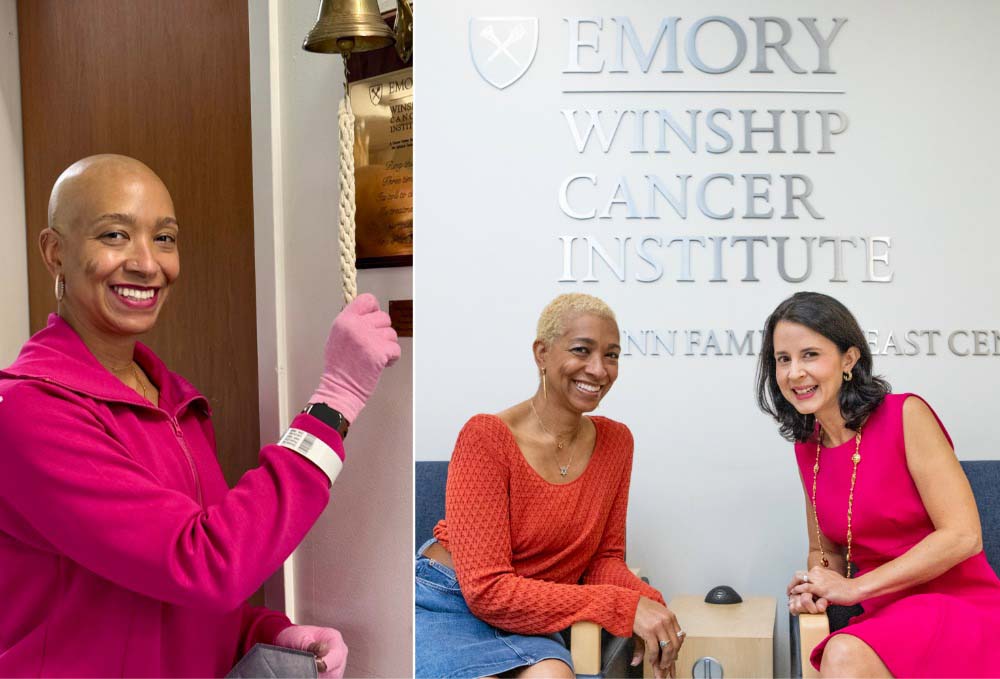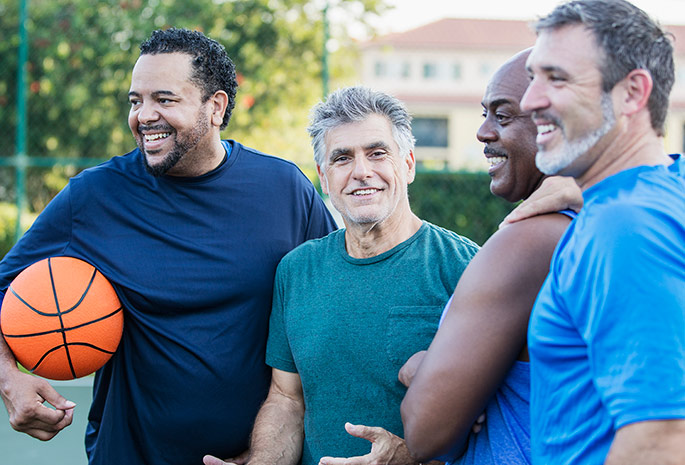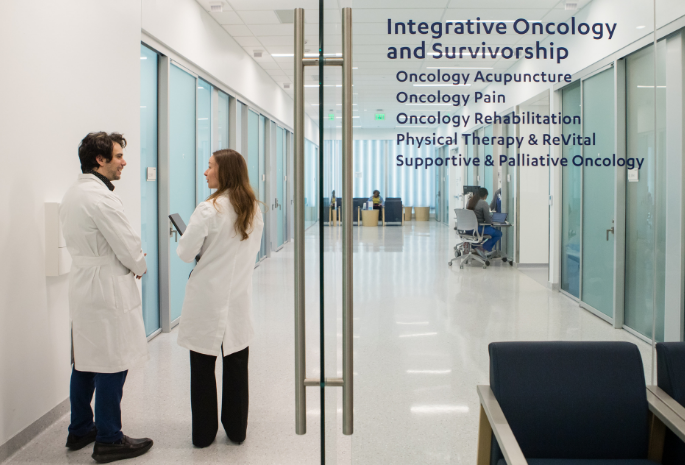Currently, roughly 1,300 patients are enrolled in one of Winship’s more than 550 ongoing interventional clinical trials. As a National Cancer Institute Comprehensive Cancer Center, Winship is well-positioned to connect you with forward-thinking studies.
“Our biggest advantage is our thoughtful team of medical providers and scientists. We work together to identify key unmet needs among our patients,” Dr. Bhave says. “And discover new ways to help advance the field of cancer care.”
For example, some of our groundbreaking clinical trials focus on biomarkers that will help us understand cancer genetics. Other studies may identify unique pathways that could allow us to target tumors with specific medications or immunotherapies.
Winship takes a multidisciplinary approach to cancer studies. Researchers work closely with the medical, radiation and surgical oncologists on every patient’s care team. They also partner with nurse navigators, patient advocates and social workers.
“It’s important that patients not feel alone when they enter a clinical trial,” she says. “With us, they have a large team of people supporting them.”
Overall, Dr. Bhave says patients at Winship embrace clinical trials as a treatment avenue that could improve their long-term health. But, for many study participants, it’s also an investment.
“Many of our patients reflect on the fact that their participation will help future generations of cancer patients,” she says.
Learn more about cancer trials at Winship Cancer Institute.
Frequently asked questions about clinical trials
- Can I leave a clinical trial at any time?
Yes. Participation in a clinical trial is completely voluntary. Patients can choose to withdraw at any time for any reason. In some cases, a care team may also recommend withdrawal if the treatment is no longer effective or if the patient experiences harmful side effects.
- Will I receive treatment if I join a cancer trial?
Yes. Patients in cancer clinical trials always receive treatment. If a placebo is used, it is never given alone. Instead, it is combined with the standard of care. All participants receive either the current best treatment, the new therapy being studied, or a combination of both.
- How do I know if I qualify for a clinical trial?
Eligibility depends on several factors, including your type and stage of cancer, as well as personal health characteristics. Your oncologist may recommend a trial, or you can search for available studies and discuss them with your care team. Winship’s research coordinators will review your information and match you with appropriate trials.
- What are the risks of participating in a cancer trial?
As with any medical treatment, there are potential risks, including side effects or the possibility that the new therapy may not be more effective than standard care. However, patients are closely monitored by both their clinical care team and the trial’s scientific team to ensure safety throughout the study.






